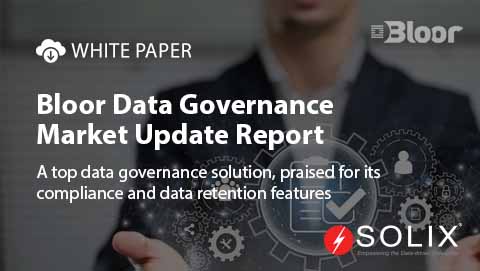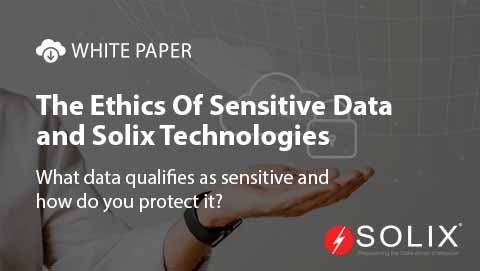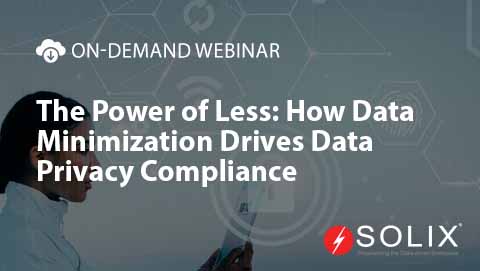
AI Document Processing Compliance
When discussing AI document processing compliance, one underlying question usually arises how can businesses ensure their use of AI for processing documents adheres to legal and industry standards This is critical because with the increasing reliance on automation and AI technologies, organizations must remain vigilant about compliance to protect sensitive data, ensure accuracy, and maintain trust with stakeholders.
Picture this youre a compliance officer at a mid-sized financial firm, juggling the intricacies of regulatory requirements while also trying to implement AI document processing solutions to streamline workflows. The promise of efficiency is tantalizing, but it also comes with an avalanche of compliance challenges. Ensuring AI document processing compliance means navigating the world of legalities concerning data integrity, privacy, and ethical use of AI systems.
Lets break down what AI document processing compliance means and why it matters. At its core, its about responsibly integrating AI technologies into your document handling processes while adhering to legal requirements and industry best practices. Compliance isnt just a checkbox; its a trust-building mechanism for your businesss reputation.
Understanding Compliance Frameworks
First, we need to understand the key frameworks governing AI document processing compliance. Regulations like GDPR in Europe, HIPAA in the healthcare sector, and various PCI standards are crucial to ensure that your AI practices do not infringe upon any rights or legal parameters. These frameworks often outline specific requirements that must be met when data is stored, shared, and processed.
For instance, under GDPR, personal data collected must be processed lawfully and transparently. This necessitates a careful approach when collecting documents through AI systems, as youll need consent from individuals for their data to be processed. Similarly, HIPAA demands stringent protections of health information, making it essential to vet any AI solutions for compliance before rollout.
Connecting these frameworks to AI document processing can seem daunting. However, it presents an opportunity to rethink how your organization approaches document management. A workflow that seamlessly integrates AI while keeping compliance at the forefront is not just beneficialits essential.
Key Considerations for AI Document Processing Compliance
When diving into AI document processing compliance, several considerations should guide your strategy. First and foremost, data protection is paramount. Ensure that your AI solutions have robust security measures in place to safeguard sensitive information. This is where solutions offered by Solix can play a significant role.
For example, Solix provides comprehensive document processing solutions that aid organizations in maintaining compliance through secure data handling. Their technology not only streamlines the processing of vast amounts of documentation but also includes features that emphasize security and regulatory compliance.
Moreover, businesses must invest in training their employees about the implications of AI and data compliance. Unsanctioned handling of data can lead to severe penalties and an erosion of trust. Ive often found that the more educated teams are regarding compliance issues, the better they handle document processing tasks, leading to fewer errors.
Monitoring and Continuous Improvement
AI document processing compliance is not a one-and-done effort; it requires ongoing monitoring and improvement. After implementing AI solutions, regularly audit your processes to catch any potential compliance breaches early. The goal here is to create a culture of continuous compliancea proactive stance that anticipates changes in regulations rather than merely reacting to them.
Additionally, using analytics can provide insights into how compliant your document processing efforts are. Leveraging AIs ability to analyze large datasets can help identify patterns or areas needing improvement. By regularly reviewing processes and outcomes, businesses can ensure they adhere to compliance standards while also improving efficiency.
Engaging Stakeholders
Stakeholder engagement is another crucial aspect of maintaining AI document processing compliance. Keep communication lines open with all levels of your organizationfrom management to the end-users of the AI systems. By involving everyone in the conversation regarding compliance, you foster a sense of accountability and collective responsibility.
Furthermore, dont hesitate to reach out for expert guidance. Consulting with professionals who have a deep understanding of compliance regulations can provide invaluable insights. Solix team, for example, is well-versed in compliance aspects of AI document processing and can assist in tailoring solutions that fit your unique needs. If you want to know more, I encourage you to contact Solix and explore how their expertise can aid your compliance journey.
Real Life Application My Experience
Let me share a personal experience that underscored the importance of AI document processing compliance. A few months back, I worked with a non-profit organization that aimed to digitize its archives. Initially, the team was focused solely on leveraging AI to speed up the digitization process, but compliance was not significantly addressed.
As I sat down with team members, it became clear that while they were eager to embrace technology, they had brushed aside the compliance implications. It wasnt until we mapped out their workflows against compliance requirements that we identified gaps that could lead to serious consequences. With Solix assistance, we were able to implement a compliant AI solution, ensuring that their data remained secure and processing could happen without the fear of future litigation. It was a profound reminder that compliance is key to success and should never be sidelined.
Final Takeaways
In summary, ensuring AI document processing compliance is a multi-dimensional effort that encompasses understanding regulatory frameworks, prioritizing data protection, engaging stakeholders, and fostering a culture of continuous improvement. Solix document processing solutions can play a pivotal role in simplifying this complex landscape. Their expertise and tools not only meet compliance standards but can also enhance operational efficiency.
As you embark on or refine your AI document processing journey, remember that compliance is not just about risk avoidance; its about building trust and credibility in your organization. If you have any questions or need further guidance on how to align your processes with compliance standards, dont hesitate to reach out to Solix at 1.888.GO.SOLIX or through their contact formTheyre ready to assist you in finding the right path.
About the Author
Kieran is an experienced compliance officer with a focus on AI document processing compliance. With years in the industry, he specializes in helping organizations navigate the complex landscape of regulatory requirements and integrating AI solutions effectively. His insights stem from real-world experiences that emphasize the importance of maintaining compliance in a rapidly evolving technology environment.
Disclaimer The views expressed here are Kierans own and do not necessarily reflect the official position of Solix.
Sign up now on the right for a chance to WIN $100 today! Our giveaway ends soon‚ dont miss out! Limited time offer! Enter on right to claim your $100 reward before its too late!
DISCLAIMER: THE CONTENT, VIEWS, AND OPINIONS EXPRESSED IN THIS BLOG ARE SOLELY THOSE OF THE AUTHOR(S) AND DO NOT REFLECT THE OFFICIAL POLICY OR POSITION OF SOLIX TECHNOLOGIES, INC., ITS AFFILIATES, OR PARTNERS. THIS BLOG IS OPERATED INDEPENDENTLY AND IS NOT REVIEWED OR ENDORSED BY SOLIX TECHNOLOGIES, INC. IN AN OFFICIAL CAPACITY. ALL THIRD-PARTY TRADEMARKS, LOGOS, AND COPYRIGHTED MATERIALS REFERENCED HEREIN ARE THE PROPERTY OF THEIR RESPECTIVE OWNERS. ANY USE IS STRICTLY FOR IDENTIFICATION, COMMENTARY, OR EDUCATIONAL PURPOSES UNDER THE DOCTRINE OF FAIR USE (U.S. COPYRIGHT ACT § 107 AND INTERNATIONAL EQUIVALENTS). NO SPONSORSHIP, ENDORSEMENT, OR AFFILIATION WITH SOLIX TECHNOLOGIES, INC. IS IMPLIED. CONTENT IS PROVIDED "AS-IS" WITHOUT WARRANTIES OF ACCURACY, COMPLETENESS, OR FITNESS FOR ANY PURPOSE. SOLIX TECHNOLOGIES, INC. DISCLAIMS ALL LIABILITY FOR ACTIONS TAKEN BASED ON THIS MATERIAL. READERS ASSUME FULL RESPONSIBILITY FOR THEIR USE OF THIS INFORMATION. SOLIX RESPECTS INTELLECTUAL PROPERTY RIGHTS. TO SUBMIT A DMCA TAKEDOWN REQUEST, EMAIL INFO@SOLIX.COM WITH: (1) IDENTIFICATION OF THE WORK, (2) THE INFRINGING MATERIAL’S URL, (3) YOUR CONTACT DETAILS, AND (4) A STATEMENT OF GOOD FAITH. VALID CLAIMS WILL RECEIVE PROMPT ATTENTION. BY ACCESSING THIS BLOG, YOU AGREE TO THIS DISCLAIMER AND OUR TERMS OF USE. THIS AGREEMENT IS GOVERNED BY THE LAWS OF CALIFORNIA.
-
-
-
On-Demand Webinar
The Power of Less: How Data Minimization Drives Data Privacy Compliance
Watch On-Demand Webinar



